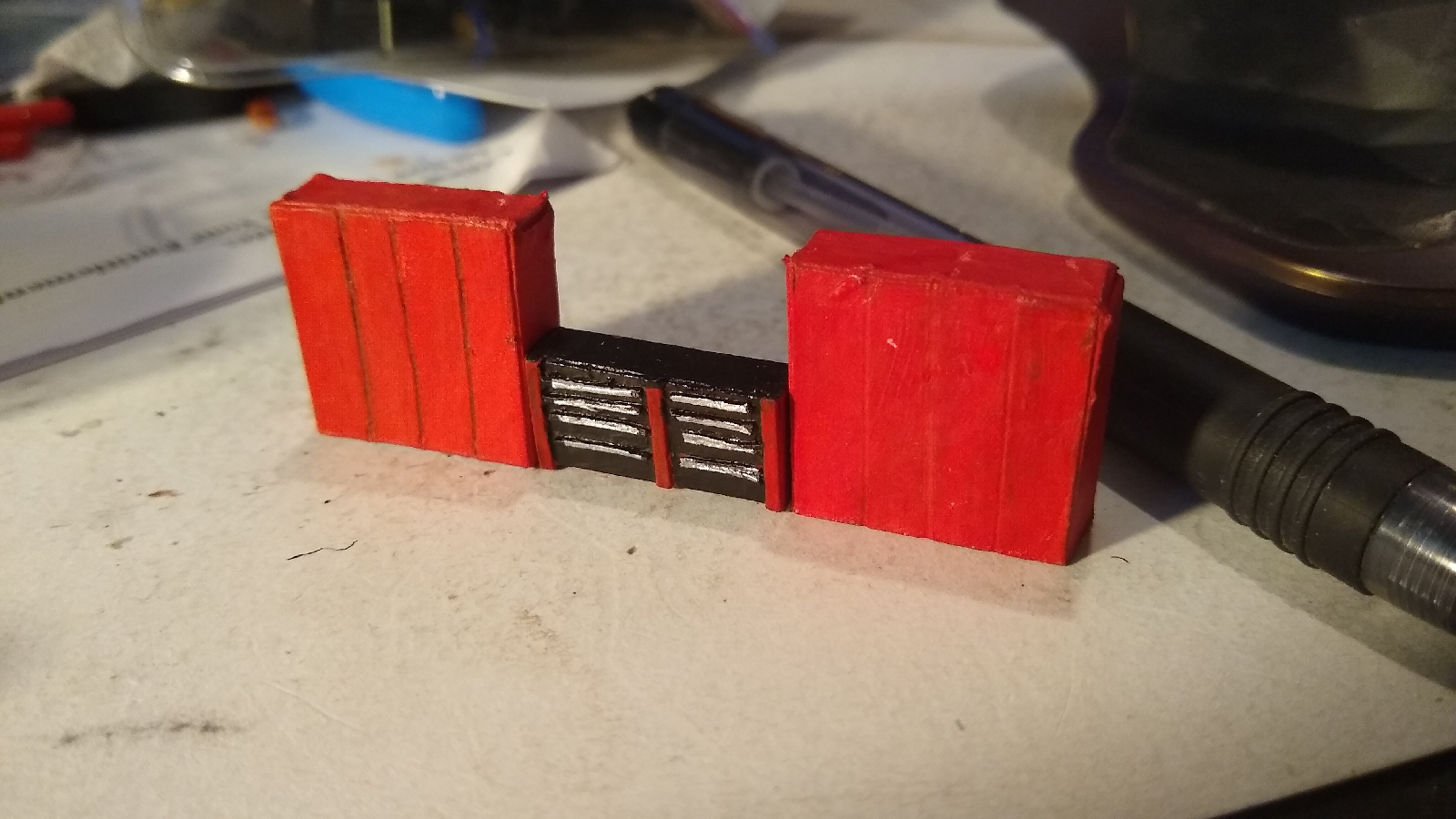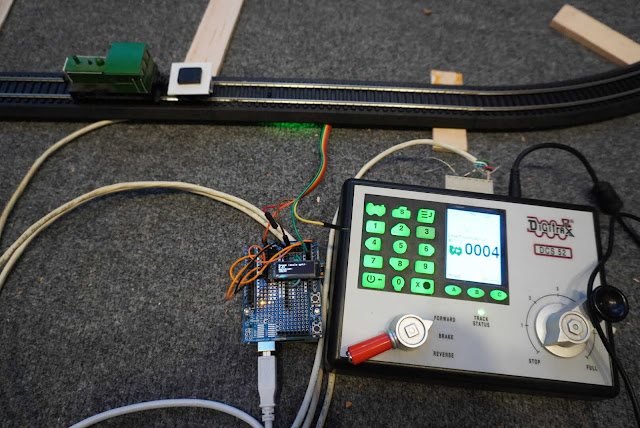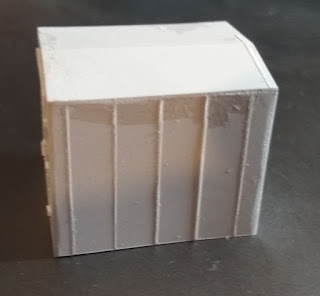Inspired by a recent Model Railroader magazine article I decided to try and build a hopper barge and and got sidetracked on this deck barge. I chose to use card stock but polystyrene, matte board, or other products could also be used. I started by using Elmer's Glue All to laminate 4 pieces of letter sizes card stock together to get the stiffness I wanted which is about 0.04". Tools & Materials Building material options: 4 sheets of card stock, polystyrene sheets, or matte board. Glue: Aleene's® Tacky Glue, Elmer's® Glue All®, Thin Super Glue (CA) Sharp knife or scissors Printout of plans or ruler Details: Cleats (6+). I put 3 on each side but I've also seen an additional 1 on each end. Bit Bollards (4) Tire bumpers (about 60) Sealer such as Matte Medium or Enamel Clear matte finish. Paint Weathering materials Build Steps Build Material: Print out the provided template ( PDF ) and laminate with 4 sheets of card stock. Or whatever thickness seems ap...


